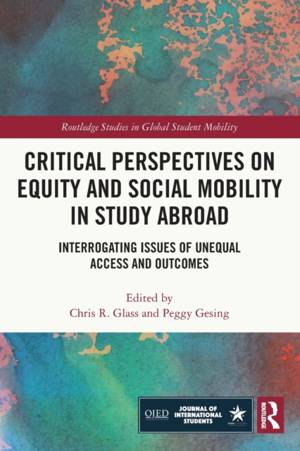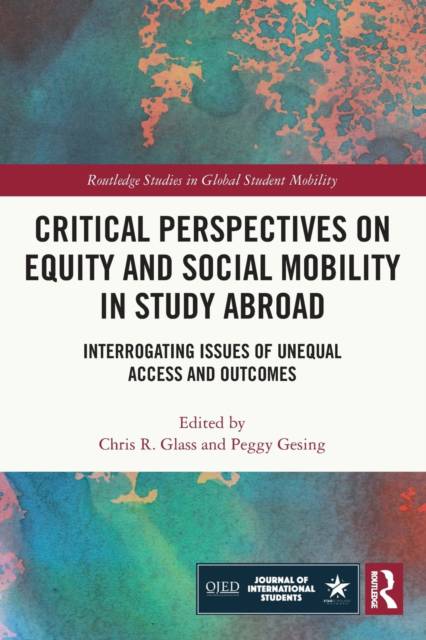
- Retrait gratuit dans votre magasin Club
- 7.000.000 titres dans notre catalogue
- Payer en toute sécurité
- Toujours un magasin près de chez vous
- Retrait gratuit dans votre magasin Club
- 7.000.0000 titres dans notre catalogue
- Payer en toute sécurité
- Toujours un magasin près de chez vous
Critical Perspectives on Equity and Social Mobility in Study Abroad
Interrogating Issues of Unequal Access and Outcomes
Description
This edited volume brings together the perspectives of a diverse group of international scholars to explore the intersections of study abroad and social mobility. In doing so, it challenges universalist assumptions and power imbalances implicit in study abroad across the Global North and South, and explores the implications of COVID-19 for equity within study abroad programs, policy, and practice going forward.
Offering empirical, theoretical, and conceptual contributions, Critical Perspectives on Equity and Social Mobility in Study Abroad foregrounds critical reflection on the stratification of access to study abroad and examines the varied outcomes of international study in relation to graduates' entry into domestic and international labor markets. Focusing on the experiences and outcomes of students from varied backgrounds, chapters identify a number of power imbalances relating to student race, ethnicity, religion, local and international policies and politics, and put forward valuable recommendations to ensure greater equity within the field.
Against the backdrop of growing criticism over the power imbalances in international exchange, this text will benefit researchers, academics, and educators with an interest in higher education, international and comparative education, and multicultural education. Those interested in educational policy and the sociology of education more broadly will also benefit from this book.
Spécifications
Parties prenantes
- Editeur:
Contenu
- Nombre de pages :
- 182
- Langue:
- Anglais
- Collection :
Caractéristiques
- EAN:
- 9780367703509
- Date de parution :
- 09-01-23
- Format:
- Livre broché
- Format numérique:
- Trade paperback (VS)
- Dimensions :
- 152 mm x 229 mm
- Poids :
- 272 g






